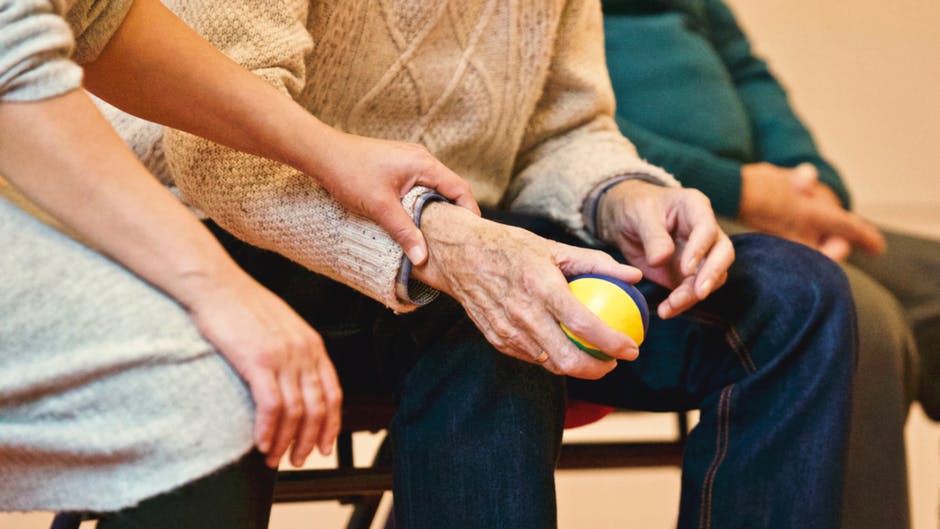Who cares for the caregivers? It’s so important that you look after yourself, particularly when you’re busy looking after someone else’s health.
It’s estimated that more than one in five caregivers will suffer from caregiver depression. That’s twice the national average.
Many caregivers find it difficult to ask for help. Here are the caregiver tips you need to ensure you stay healthy and don’t overstretch yourself.
Have the Caregiving Conversation Early
It’s important to try to discuss the care of your loved ones long before they actually need it. As adults, it’s a good idea to begin talking to parents about caregiving when they reach the age of around seventy.
This is even if, or perhaps especially if, they’re still healthy. This helps you discover what they’d like to happen if they become ill or immobile. There may be lots of options, from moving in with you to home health care or assisted living.
Nobody is going to pretend that these conversations are easy. It can be painful to think of our parents as ever being incapacitated. Our parents too may not want to face up to potential problems they may have in the future.
However, it’s far better to begin discussing these issues early rather than waiting until there’s a serious problem.
Seek Caregivers Guidance
You’ll probably have thousands of questions when you become a caregiver. You may need to understand the boundaries of your responsibilities. There’ll be practical questions about diet and transport.
Some organizations may offer classes in caregiving. These may include the National Family Caregivers Association and the Red Cross. The classes can be invaluable.
Always look for new and different ways to save time and reduce your to-do list. The time spent doing this is a great investment.
Getting More Help
You could ask friends or family members to commit to helping with errands. You could also look into enrolling the person you’re caring for into an adult day program. One in three seniors is thought to be lonely.
Human connection and socialization are really important. Research shows a link between loneliness and higher risks of a variety of physical and mental conditions. When it comes to social contact, more is usually better.
You may be juggling a caregiver role with other responsibilities. That may leave little time left for meaningful conversation with your loved one.
Having a companion matters to older people. You may be able to pair your loved one up with a call buddy who can talk to them regularly over the phone.
You might also need to hire in-home caregiving help. You could also look into any volunteer senior companion programs in your area.
Make sure you use home deliveries. You’ll need to use everything you can to help save your valuable time and energy.
Caregiver Support
Before you set out on your caregiver journey you need to be realistic about the care you can provide without damaging your own health. Don’t allow yourself to burn out.
One of the first things to do is connect with other caregivers. This could be in the form of a support group for caregivers. A problem shared really is a problem halved. You can be sure that someone else will be facing similar issues to you.
These groups are a great opportunity to exchange tips and advice. They are also a place where you can express your concerns. Check at the doctor’s office or local hospital to find out about community support groups near you.
Have a continuing dialogue with other family members and friends about the situation. Additional ways they can share in caregiving may come up as time moves on. If you talk regularly you’ll be able to take advantage of these opportunities.
Ask a relative or friend to look into the sorts of help you might be able to get at home or in local senior centers. They may discover volunteer organizations that provide some relief free of charge.
Keeping All Options Open
It’s always worth thinking about longer-term options for the future. This applies even if your loved one is managing on their own. Check out local nursing homes and caregiving facilities.
This is going to allow you to get a plan together for the future. Bear in mind that a lot of assisted living facilities and nursing homes have waiting lists and it can take years to get a place.
Understanding Any Financial Implications
It’s important to consider all the tough legal and financial issues that may come up while you are caregiving. If your loved one goes into a nursing home, would they be able to afford it?
You should do some research about gaining power of attorney and will-making. These can be emotive issues. But it really is better to have found out as much as you can beforehand. Forewarned is forearmed.
Be Good to Yourself
It’s important to set yourself some personal health goals. These will ensure you have a good sleep routine. Try to exercise several days a week, even if it’s just a short, brisk walk. Eating healthily is also going to help.
Make sure you always make some ‘me’ time by doing something that makes you feel better. This could be things like going to see a movie or ballgame. It’s a mistake to let caregiving take over your life.
Be kind to yourself and be mindful of the gift you are giving. Ensuring the person you’re caring for feels safe, comfortable, and loved is a wonderful act of goodness.
Using relaxing techniques like mindfulness can really help get you through the most trying of times. They’ll help you to concentrate on the present and to worry less about things that might never happen.
The Best Caregiver Tips for a Brighter Future
Caregiving can be a challenging but uplifting experience. It’s best to get all the help and support you can when you’re starting out. Our caregiver tips are there to help you find the resources you’ll need on your caregiving journey.
Continue reading the articles on our site for more useful health and lifestyle tips.











